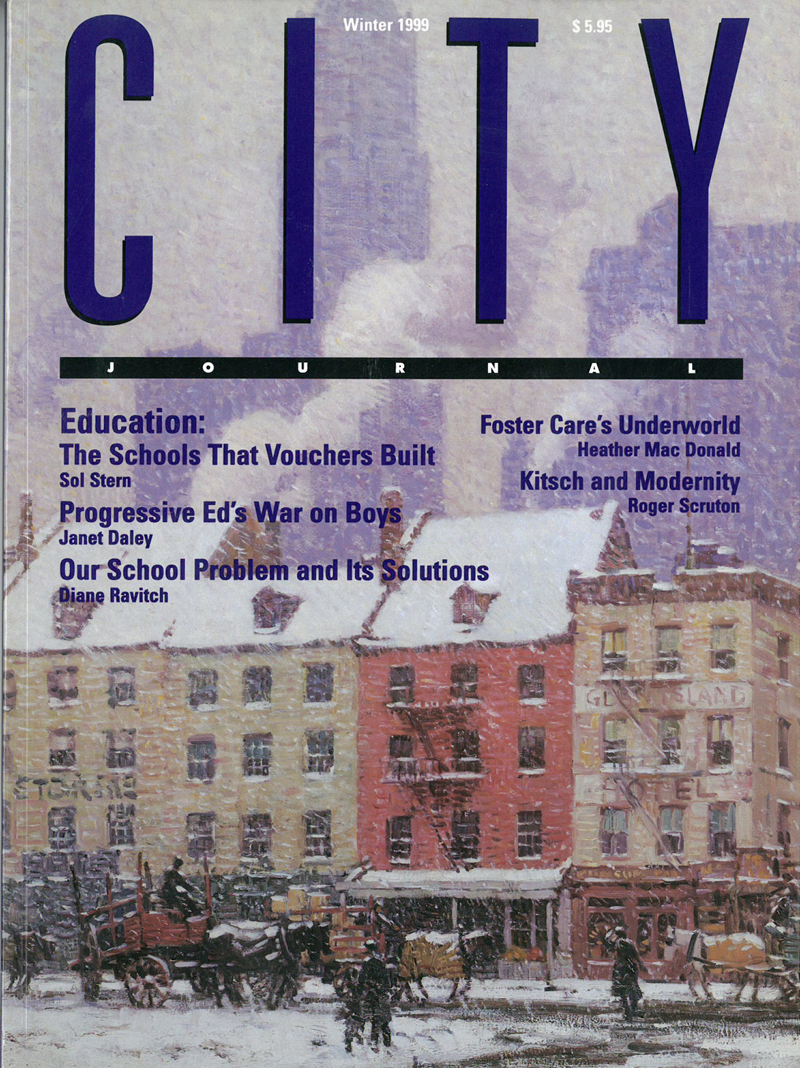Hollywood has always been a steadfast partisan in the culture wars, but recently there have been signs of wavering. The highly acclaimed and potential Oscar nominee Pleasantville captures the feel of this transitional moment. Mostly, the movie is a predictable boomer sermon reminding us, to use Russell Baker’s words, that “the fifties was the black hole of the 20th century.” It tells the story of Jennifer and David, a teenaged brother and sister, who are zapped into the world of a fifties Father Knows Best-style sitcom.
Yes, at first, everything seems hunky dory. Mom provides a groaning board of comfort food at every meal, Dad comes home for dinner every night, people civilly doff their hats. But don’t be fooled, director Gary Ross warns. As Jennifer introduces the unenlightened town denizens to sex—including, bizarrely, a mother of two—and David acquaints those same philistines with art and literature (improbably, since in his nineties home he couldn’t be pried from the TV) the cheerful fifties mask falls away to expose the skeleton face leering underneath. We learn that the town is a haven for crypto-fascists willing to pay the price of censorship, emotional strangulation, bigotry, and enslaving conformity to ensure that Mom will put meatloaf of the table every night. So far, it’s pure sixties agitprop.
Yet, Ross also permits a peek at the trade-off that comes after sixties liberation: in particular, the inept narcissism of contemporary parents. In one of the few geniune moments of the film, David and Jennifer listen as their mother argues bitterly over the phone with her ex-husband when he tries to renege on a custody arrangement that would deprive her of the chance for a weekend of mud baths with her younger boyfriend. So total is her childishness, that it is David who must dry his mother’s tears and reassure her when her plans go awry, not the other way around.
Indeed, the failure of boomer parents is becoming a stock theme on contemporary kids’ movies and TV. In one episode of Buffy the Vampire Slayer, the adults turn into sixties teenagers, singing “Louis, Louis” at a school dance, making out in their mini skirts and high boots, smashing up their cars. “This is not normal!” Buffy wails, as she wanders around what she calls this “Land of the Irresponsible.” “I need an adult!” On Daria, a hip cartoon series for teenagers, the father sputters, “I told you I was no good at this parenting crap!”
You’re never too young to get an education about the egotism of boomer parents. On the highly popular preschool cartoon series, Rugrats, three-year-old Angelica’s mother is a power yuppie so negligent that her daughter threatens to sue her. In another episode, Angelica has a flashback to her birth. “It’s a girl,” her mother barks into her cellphone as her husband wheels her down the hospital corridor. “And her name is . . . ah . . . ah . . . what’s her name again?”
“The sixties lose!” sneered an ad for Daria. It’s not that simple, of course; but without question, something new is in the air.
